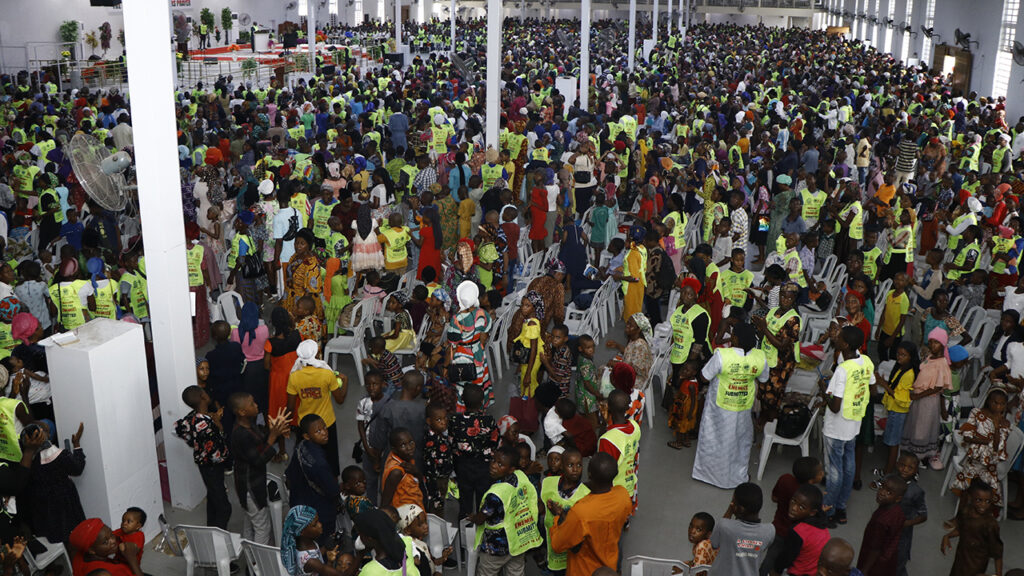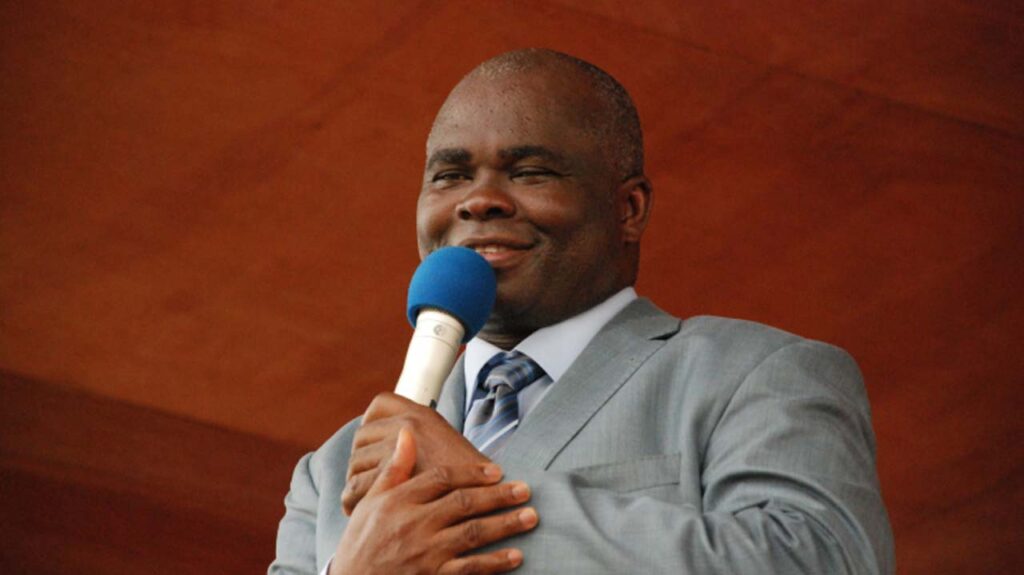
 The Catholic Media Practitioners Association of Nigeria (CAMPAN) of the Catholic Diocese of Abeokuta recently marked this year’s 58th edition of the World Communications Day at the Cathedral of SS Peter and Paul, Itesi, Abeokuta, Ogun State, with the Catholic Bishop in the Diocese, Most Rev. Peter Olukayode Odetoyinbo enjoining media practitioners to be on top of their games in accurate news reporting.
The Catholic Media Practitioners Association of Nigeria (CAMPAN) of the Catholic Diocese of Abeokuta recently marked this year’s 58th edition of the World Communications Day at the Cathedral of SS Peter and Paul, Itesi, Abeokuta, Ogun State, with the Catholic Bishop in the Diocese, Most Rev. Peter Olukayode Odetoyinbo enjoining media practitioners to be on top of their games in accurate news reporting.
In his sermon centered on this year’s theme, “Artificial Intelligence and the Wisdom of the Heart: Towards a Fully Human Communication.” The Bishop reminded Catholic media practitioners of the mandate from the Holy Father and church, urging them to make good use of artificial intelligence to propagate man’s co-creating nature without losing the wisdom of the heart.
Oluwafemi Adelodun, an IT expert and a principal officer of the West African Examination Council (WAEC), Lagos Head Office moderated the symposium held to celebrate the day.
According to the moderator, Artificial Intelligence as a development of computer systems can perform tasks normally performed by humans, asserting that parents have the moral obligation and responsibility to bring up their children in a world where people are interested in short cuts to success and solving problems with the fear of God, describing such upbringing as the wisdom of the heart.
The director of Social Communication of the Diocese, Rev. Fr. Greg Fadele, dissected the message of the Holy Father, the Pope on this year’s theme, saying the church welcomes AI as part of the tools for acculturation.
According to him, the Holy Father raised deep questions about the nature of human beings, and the future of ‘homo sapiens’ in the age of artificial intelligence, intentionality and finality?
He noted that there are technical, scientific and political problems with artificial intelligence that can only be resolved by starting from our humanity.
He noted that Pope Francis said: “Wisdom cannot be sought from machines. Although the term “artificial intelligence” has now supplanted the more correct term, “machine learning,” used in scientific literature, the very use of the word “intelligence” can prove misleading. No doubt, machines possess a greater capacity than human beings for storing and correlating data, but human beings alone are capable of making sense of that data.”
He disclosed that Magisterium AI (M.Ai) created by a US-based company, ‘Longbeard,’ aims to make Catholic insight and Church teaching available across the world, as it provides a growing dataset of Church document, including Catholic doctrine, teachings and canon law more accessible.
According Fadele, the machine can answer questions on Church teaching, practices among topics and could also explain complex theological concepts in simple language.
He said: “It can be downloaded on both android devices and iPhone. The difference between Magisterium AI and Chat GPT is that it is trained on a private database of only Church document and, therefore, less likely to give guess answers. At the moment, it is available in 10 languages, including English, French and Spanish, and currently used in 125 countries. All media technologies are gifts from God, and the Church must always take advantage of them for her mission.
“Catholics need to engage this app to aid evangelism, particularly in the areas of formation like catechesis, proclamation and even spirituality.
In the religious sphere, today, we have robot priests and monks: Bless U-2, the Robot Priest in Germany to bless; Mindar: the Robotic Buddhist Priest to teach and preach; Pepper: the Robot Monk developed in Japan to perform funeral rituals.”
He enjoined media practitioners to uphold the truth at all times and avoid the exaggerated reduction of human thinking/intelligence to mechanical process.
Peter Arabomen, an IT expert with Fidelity, explained that Artificial Intelligence is a programme designed to perform specific tasks, noting that anything outside the written programme will be impossible for it to perform.
Noting that AI is classified into three main types, Narrow AI, General AI, and Super AI, he said each type has its unique characteristics, capabilities and limitations.











